Christian Korea
Just like baseball and pop music, there’s another aspect of American culture which Korea has adopted, and then taken to the next level: in-your-face Christianity. I can’t get through a single day without encountering another proselytizing Protestant, whether in the street or the subway. They invite me to their church, push “Jesus Loves You” fliers into my hand, and pray aloud for my eternal soul. They lure me in with free orange juice, and only then reveal their true intentions. They’re trickier, these Korean Christians, and more determined than their American brethren. They see my soul, and they want it. They want to gobble it up.
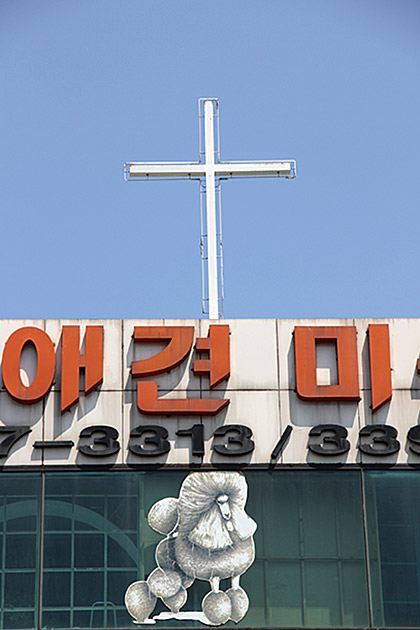
If you add up the Protestants (18%) and Catholics (11%), Christians outweigh Buddhists in Korea by a healthy margin, 29 to 23%. Their churches might not be as lovely or traditional as the Buddhist temples we’ve visited, but there are plenty of them, often advertised with a gaudy neon red cross. The world’s single largest Pentecostal church is in Korea: Seoul’s Yoido Full Gospel Church, with a congregation over a million strong.
Christianity was introduced to the peninsula in the 17th century by European missionaries. The ruling Joseon Empire was highly suspicious of all foreign influence, and targeted Catholics for abuse and murder, up until their dissolution in 1910. Which, of course, only provided the persecuted religious minority with martyrs.
During the 1910-1945 Japanese occupation of Korea, Christianity came to be identified with Korean nationalism — Japanese beliefs were being forced onto the subjugated country, including the demand to worship Japan’s Emperor as a god. Christians refused to do this out of religious principle (it’s Commandment #1, after all) and thus won a lot of respect from their compatriots, who assumed they were refusing because they loved Korea so much.
Christianity only strengthened its foothold after the Japanese occupation ended, and the period of US influence began. The menace of North Korea was looming, and the religion was thought to be a sort of spiritual immunization against communism. In the aftermath of the Korean War, Christianity was aggressively evangelized, particularly among the poor and distressed, who were in great number. South Korea would recover and grow into an international financial powerhouse, and Christian faith was thought by many to be a key factor in the transformation.
All of which goes a long way in explaining why Christianity is so popular here. What I can’t figure out, is why they so desperately want to sign me up. I suppose it’s a nice gesture, being concerned with my eternal soul, but still. Buddhists kind of just leave you alone and do their own thing. That appeals to me a whole lot more than the constant public preaching.
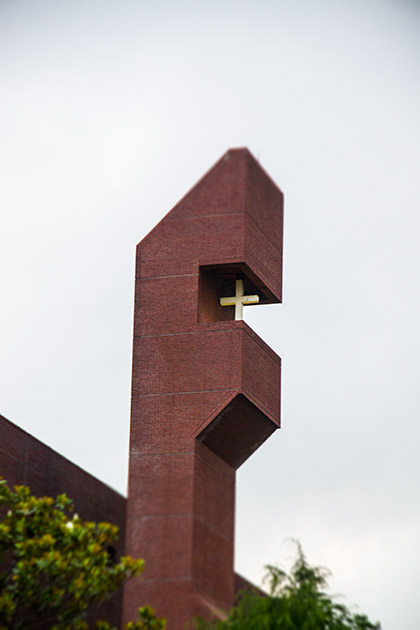
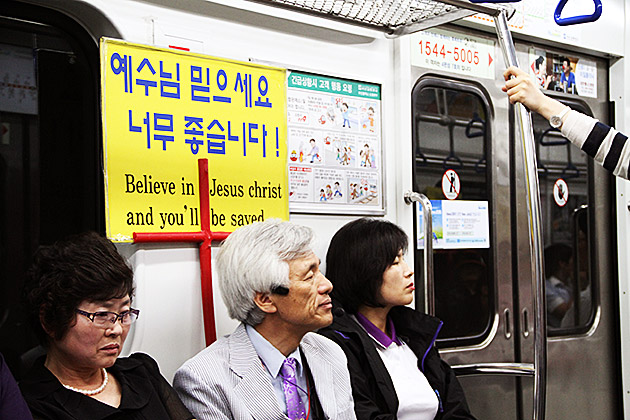
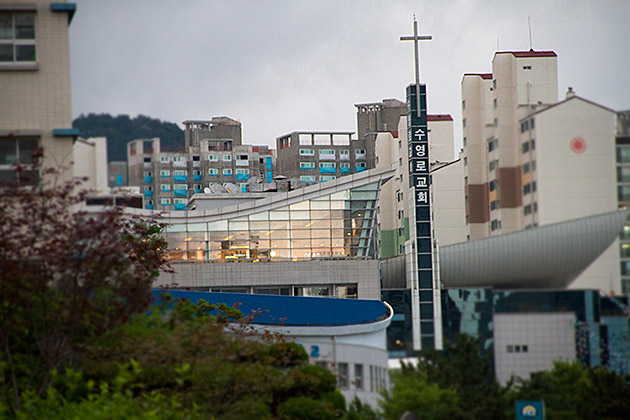

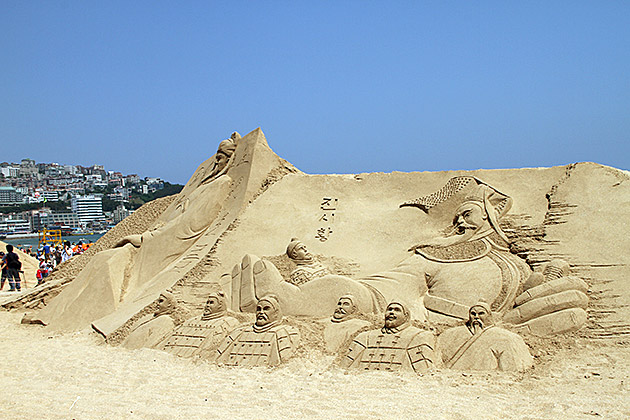
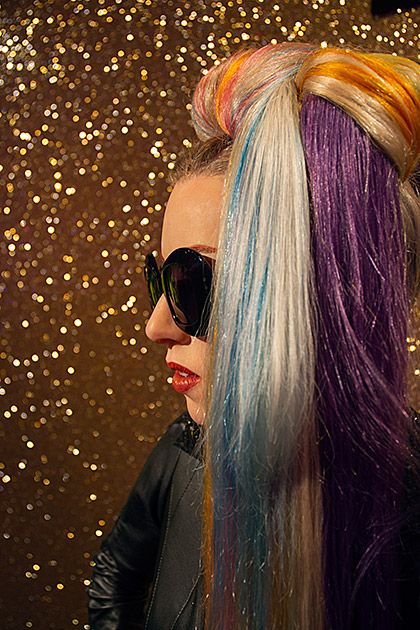

I couldn’t agree more. I live in Seoul and I’ve frequently been asked to join church groups and attend service. When I first came to Korea, I even got tricked into attending an English service! I was told it was an “exchange student welcoming party.” Besides the hilarity of listening to “God is Good!” chanting and the free rice cakes at the end, the experience wasn’t very pleasant. I respect whatever religion one chooses for themselves, but like you, I don’t want to be pestered on the street when I’m clearly not interested. However, the mini packs of tissues, wet wipes and hard boiled eggs at Easter that are passed out on the street can be nice…